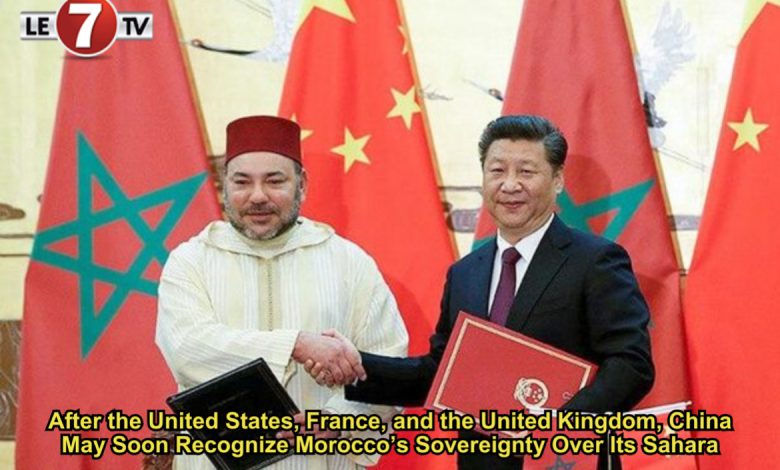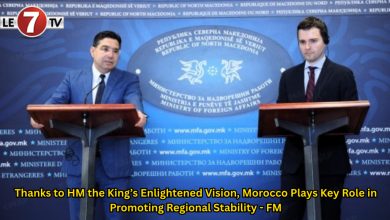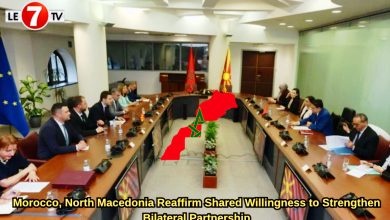After the United States, France, and the United Kingdom, China May Soon Recognize Morocco’s Sovereignty Over Its Sahara
Following the recognition of the Moroccan Autonomy Plan for the Sahara by the United States, France, and the United Kingdom, a new and significant development appears to be on the horizon: China is reportedly preparing to express its support for Morocco’s sovereignty over the Sahara.

According to converging sources and geopolitical experts, Beijing is seriously considering opening a consulate in Laâyoune, the administrative capital of Morocco’s Southern Provinces, and investing heavily in the Dakhla Port project. This prospect comes amid growing diplomatic ties and strategic cooperation between Morocco and China, reflecting an intensification of Sino-Moroccan relations and Beijing’s rising investments in the Kingdom.
Moroccan Diplomacy Gains Ground: A Strategic Offensive Led by the King
Under the visionary leadership of His Majesty King Mohammed VI, Morocco’s diplomacy continues to expand its influence and credibility on the international stage. The number of countries backing Morocco’s Autonomy Plan continues to grow, beginning with the historic U.S. recognition, followed by France and the U.K.
The official inauguration of the U.S. consulate in Laâyoune, expected to coincide with the 50th anniversary of the Green March, will mark a major milestone in this diplomatic momentum.
In this context, a possible Chinese recognition of Moroccan sovereignty over the Sahara would represent a pivotal moment, sending a clear message: the international community is increasingly unified around a realistic, lasting, and sovereign-based solution to the conflict.
Laâyoune and Dakhla: Hubs of Opportunity and International Cooperation
Today, Laâyoune and Dakhla stand out as key regional hubs, offering a stable and attractive environment for foreign investors and strategic partners. For China, which is seeking new cooperation channels in Africa, Morocco appears as a reliable, forward-thinking partner. This contrasts starkly with neighboring Algeria’s stagnant and confrontational diplomacy.
Morocco as a Central Actor in a “New Regional Order”
While Algeria struggles to find direction, relying on outdated alliances and an ineffective diplomatic approach, Morocco continues to chart a confident and autonomous course. Its commitment to peace, South-South cooperation, and sustainable development has positioned it as a pillar of stability in the Western Mediterranean and across Africa.
The growing endorsement of Morocco’s Sahara plan by major global powers is a resounding rejection of the separatist narratives supported by Algeria. If China follows the lead of the U.S., France, and the U.K. and officially recognizes Moroccan sovereignty, it could be seen as a decisive blow to Algeria’s struggling diplomatic stance, increasingly out of sync with today’s global realities.
A Diplomacy of Progress and Foresight
In a world searching for new geopolitical balances, Morocco affirms its role as a constructive, forward-looking nation. Thanks to Royal vision and a proactive, strategic diplomacy, the Kingdom stands out as a bridge between continents, a credible voice in global dialogue, and a model of stability in a turbulent region.








